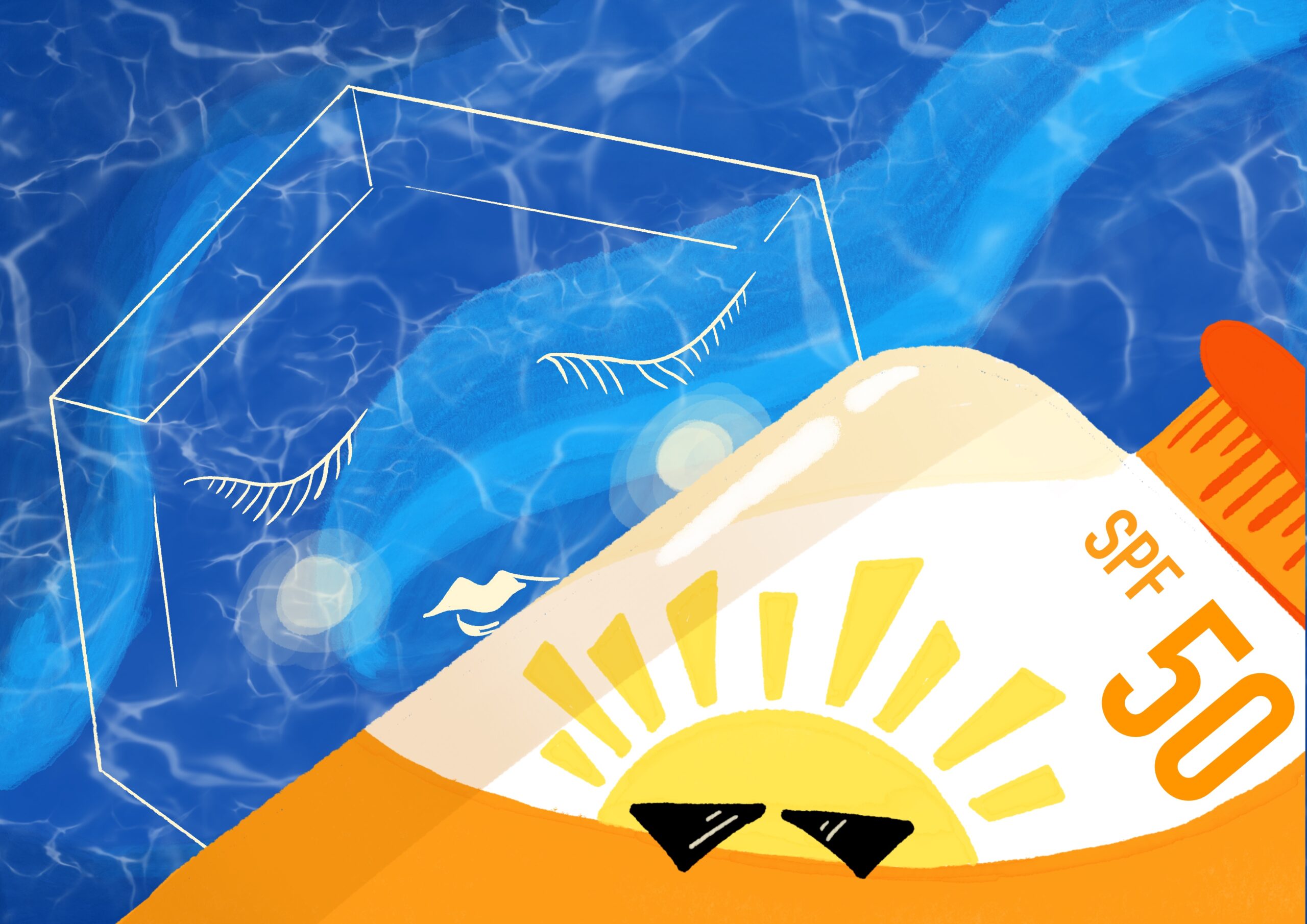
Sunscreen Recall due to Benzene Contamination
BY ALEXIA JAIME
At UC San Diego, there are countless activities that students and faculty love to partake in, including surfing, biking, supporting our amazing sports teams, and more. All of these activities have one thing in common: the sun! Sunscreen is a must-have for all these activities because there’s nothing worse than coming home from a day full of fun outdoor activities and realizing you are sunburnt. It is always good practice to put on sunscreen before participating in these thrilling activities; however, you should be wary of what sunscreen you are putting on.
Testing performed by an independent pharmaceutical company, Valisure, found benzene contamination in 78 sunscreen and suncare products. They found that 27% of the products tested contained detectable amounts of benzene.1 A few of the products tested also had significantly more than the allowable Food and Drug Administration (FDA) concentration limit. Subsequently, Neutrogena and Aveeno have decided to voluntarily recall some of their products.2 Visit their website here to see a full list of the recalled products. If you realize you have one of the recalled products it is recommended that you dispose of it appropriately.
Benzene is an industrial chemical that many of us have heard of, but why is benzene contamination harmful? Benzene is a carcinogen, meaning it has the capability to cause cancer in living tissue. More specifically, benzene has been linked to blood cancers, such as leukemia.3 Exposure to benzene can occur orally, by breathing air containing benzene, or through absorption through the skin.3 Government organizations such as the Occupational Safety and Health Administration (OSHA), the FDA, and the Environmental Protection Agency (EPA) regulate the allowable amount of benzene in workplace air, drugs, cosmetics, gasoline, and drinking water. When these concentrations are surpassed, it can be detrimental to our health. To limit benzene exposure you can avoid secondhand smoke and products containing benzene, including but not limited to dyes, detergents, rubbers, plastics, pesticides, and gasoline.3
So, how did benzene end up in these sunscreen products? Manufacturers were surprised to find any amount of that carcinogen in their products. Benzene is not an ingredient that is added to sunscreen. Therefore, the most probable cause for the contamination was as a byproduct of manufacturing.4
Although the recent studies may raise some concerns, it is still extremely important to protect ourselves from UV radiation. Excessive sun exposure, without proper protection, can lead to premature aging of the skin, sun damage, and even melanoma.5 If you have worries about what products to use, be sure to consult your physician. It is also a good idea to keep yourself up to date with the latest recalled products so you can discontinue your use of contaminated products. Just remember that with the proper protection you can still have worry-free fun participating in outdoor activities!
References
- “Valisure Detects Benzene in Sunscreen.” Valisure , Valisure News, https://www.valisure.com/blog/valisure-news/valisure-detects-benzene-in-sunscreen/.
- “Aerosol Sunscreen Voluntary Recall Statement.” Neutrogena, Johnson & Johnson Consumer Inc, https://www.neutrogena.com/sunscreen-recall.html.
- Centers for Disease Control and Prevention. Facts About Benzene. 2013. Accessed at https://emergency.cdc.gov/agent/benzene/basics/facts.asp on March 15, 2022.
- Aral, Birnur, and Zee Krstis. “Everything You Need to Know About the Recent Sunscreen Recalls.” Good Housekeeping, Hearst Magazine Media, Inc., 17 Aug. 2021, https://www.goodhousekeeping.com/beauty/anti-aging/a37273260/benzene-in-sunscreen.
- World Health Organization (WHO). Ultraviolet radiation (UV): The known health effects of UV. Accessed at https://www.who.int/uv/faq/uvhealtfac/en/index1.html on January 7, 2022.
